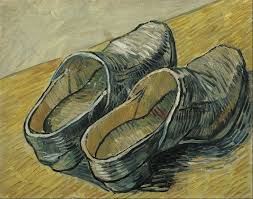This year I have been thinking and writing about this idea of consciously taking principles of recovery to the work place. We do, “practice these principles in all our affairs” but sometimes when I listen to others in meetings—or listen to myself driving home from work—I really wonder about that “All of our affairs” part.
I know that we strive for “progress not perfection,” but still. I think this is a good topic for women and men in long-term recovery: How are we, as recovering people, doing in our work/career/retirement lives?
Here’s what I jotted down last night. See if any of this resonates with you:
My recovery tells me not to use drugs, alcohol, food, sex or other behaviors as a way to squash feelings or things I don’t want to look at. So in my work life how am I doing with control, perfectionism, workaholism, or sloth?
My recovery tells me to trust my Higher Power and that there is a plan for my life. Do I pray about my work? Do I trust the processes there?
My recovery tells me to be honest: both the “cash register honesty” and people honesty. And to be honest with myself. Am I honest at work? With time, with responsibility?
My recovery tells me to look at myself first and to “pull my projections” as Carl Jung taught Bill Wilson. We have the Tenth Step Axiom: When I am upset, the upset is something inside of me. That’s a hard one to practice at work. Ouchy!
My recovery tells me to “Think, Think, Think” and to “Let Go and Let God”. Can I apply that at work?
My recovery tells me that when I feel down or I’m struggling that I should work with a newcomer or another alcoholic. So, is the workplace equivalent mean that when I feel unhappy at work I should go help a coworker? Or do a helpful task that I don’t get credit for? Maybe just pitch in and be of service and not look for credit or praise? Maybe it means I should mentor someone or offer encouragement to someone at my workplace.
My recovery tells me, “Don’t use no matter what.” So, at work maybe that means that I should not use fear, dishonesty, unkindness, or ego.
My recovery tells me to take an inventory once a year—or as needed. So maybe for my job or career I could also look at my “saleable goods” (skills, talents, abilities) and decide what I can let go of: old pride, past accomplishments and the grudges that I am holding on to.
Recovery tells me to make amends quickly and only point out my side of the street. So, am I able to say, “I’m sorry” and “I was wrong” and “I made a mistake” at work?
My recovery tells me that I am a work in progress, and that I always have more to learn. So, can I remember Dr. Bob’s great words when I am at work, and post this quote on my laptop:



